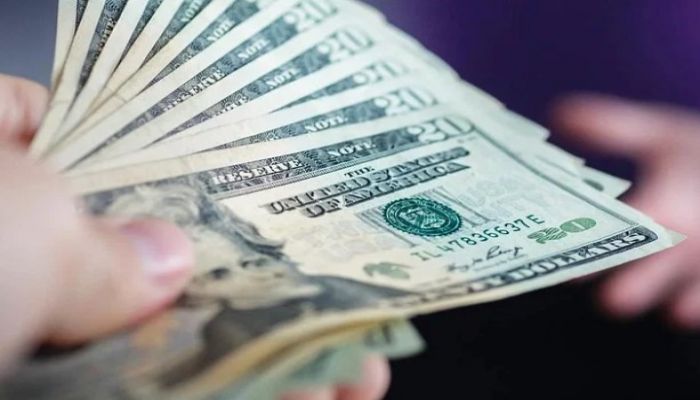
Dhaka Receives Highest Remittance In Jul ‘23- Feb ‘24
Desk Report
Published: 15 Apr 2024, 11:09 am

US Dollar. File Photo
Expatriates sent the highest amount of remittance between July 2023 and February 2024 through legal channels across Dhaka district, followed by Chattogram, according to the latest data on the district-wise remittance of Bangladesh Bank. And next with other districts that followed Chattogram were Sylhet and Cumilla, Noakhali, Brahmanbaria, Feni, Moulvibazar, Chandpur and Narsingdi.
Central bank data reveals that expatriates remitted 15.07 billion US dollars between July 2023 and February 2024, with January and February seeing inflows of 2.16 billion US dollars and 2.10 billion US dollars in remittance.
Data showing that Dhaka district alone received 5.23 billion US dollars during this period, followed by Chattogram, which received 1.42 billion US dollars while Sylhet received 870 million US dollars, Cumilla 810 million US dollars, Noakhali 460 million US dollars, Brahmanbaria 38 million US dollars, Feni 37 million US dollar, Moulvibazar 360 million US dollar, Chandpur 350 million US dollar and Narsingdi received 250 million US dollar.
Remittance increased by 3 per cent to 29.10 billion US dollars in 2023 from 21.30 billion US dollars in 2021, which was 22.07 billion US dollars in 2021, 21.73 billion US dollars in 2020 and 18.33 billion US dollars in 2019.
Bankers said the inflow of remittance was not as high as expected as many expatriates settled in foreign lands permanently, and they are selling their properties and taking money abroad, thus, money laundering is on the rise.
Banks are purchasing US dollars for remittance at a higher rate than the fixed rate of Tk 110 a dollar because of the persistent dollar crisis, resulting in a rise in the inflow of remittance. Many people are also repatriating the laundered money home, according to bankers.
The Bangladesh Foreign Exchange Dealers' Association (BAFEDA), which represents banks dealing with foreign exchange, and the Association of Bankers, Bangladesh (ABB), representing top bank executives, have been regularly fixing the exchange rate for the dollar based on the supply and demand in the market, primarily in coordination with commercial banks, since the last quarter of 2022.
Many initiatives including increasing the exchange rate and incentives were undertaken last year to boost the remittance inflow. Still, remittance was not as high as expected through legal channels even though expatriates enjoy a 2.5 per cent incentive from the government on remitted money and an equal amount from banks.